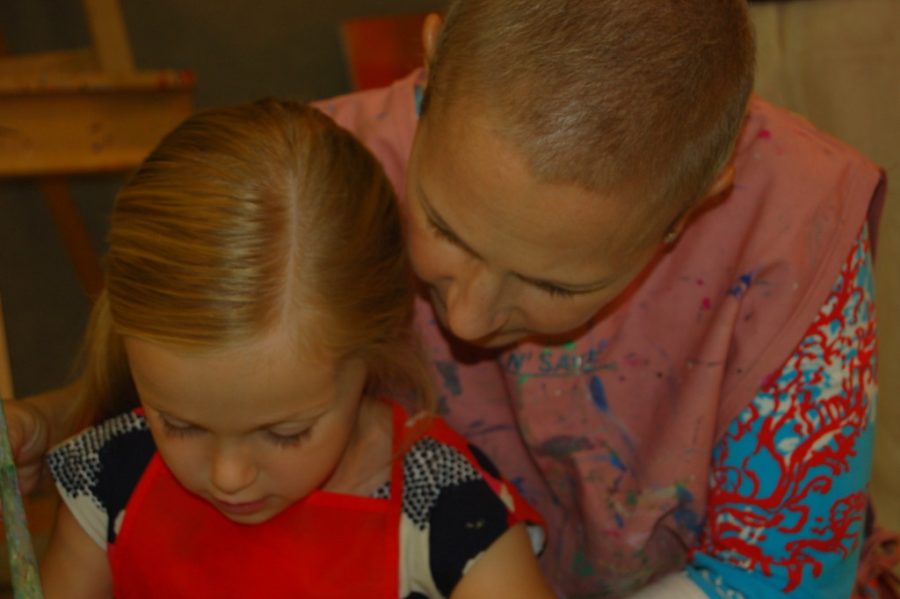Cancer. It is a scary word. No parent wants to face cancer, especially when raising children. When a mom or dad is diagnosed with cancer they are faced with many difficult decisions and questions. What treatment do I choose? Where should I get treated? How much will this cost? Will I survive? One of the most difficult decisions is how to tell the children. Some parents question if they should tell the children anything and others struggle with how much information to share. Talking to children about a parent’s illness is not easy.
The hardest part is starting the conversation. What you say to your child depends on their age and developmental stage. No matter how young or how old a child is, open and honest communication is the key. Younger children need reassurance that they will be cared for during a parent’s illness and older children may need more details on the diagnosis and treatment and how this will affect their lives. Below are some tips on how to talk to children about a family member’s diagnosis.
Tips to Start the Conversation
- Answer your child’s questions simply and honestly.
- Children can sense when a parent is withholding information or not telling them the truth. Not talking about cancer may suggest that it is too terrible to discuss. They may feel more fearful if they do not know what to expect during you cancer journey.
- Give your child the opportunity to ask questions.
- It is important to listen to your child and ask them what they think cancer is and what they are worried about during this time. This will give you the opportunity to correct any misinformation they may have.
- Provide reassurance.
- It is important to comfort your child and provide security during this time of uncertainty. Tell your children that you do not know how everything will turn out, but as a family, you will face this challenge together. Give them lots of love and affection during this time.
- Acknowledge the changes in the family routine.
- Explain to your children that you are also sad when you miss soccer practice, dance recitals, or other important event in their lives. Let them know that their needs are still important and you will try to keep a normal routine as much as possible. Use friends and other family members to help you with these events when you are unable to attend.
- Allow your children to help you.
- Most children like to feel that they are doing something to help the family during this crisis. Give them age appropriate tasks such as household chores that give them a sense of accomplishment.
- Communicate with teachers.
- It may be helpful to talk with your child’s teacher and/or guidance counselor about your illness. They can help you look for changes in your child’s behavior and support your child when they are not at home.
Kids Together Against Cancer is a non-profit that provides free support to families with a parent or grandparent with cancer. We employ Licensed Clinical Social Workers and Art Educators to provide art workshops to parents and children. Learn more at www.ktacjax.com
About the Author
 Jennifer Maggiore is a Licensed Clinical Social Worker who is Board Certified in Oncology Social Work. She has over 20 years of experience counseling cancer patients and their families. She serves on the board of the Florida Society of Oncology Social Workers currently as their president. She has received the Amercian Cancer Society’s Lane Adams Quality of Life Award and the Leadership in Oncology Social Work award. In 2009, St. Vincent’s received a grant to develop a support program for children who have a parent with cancer. She helped establish Kids Together Against Cancer, North Florida’s first and only support program to help children cope with their mother of father have cancer. Jennifer has dedicated her career to advocating for and providing assistance to local cancer patients.
Jennifer Maggiore is a Licensed Clinical Social Worker who is Board Certified in Oncology Social Work. She has over 20 years of experience counseling cancer patients and their families. She serves on the board of the Florida Society of Oncology Social Workers currently as their president. She has received the Amercian Cancer Society’s Lane Adams Quality of Life Award and the Leadership in Oncology Social Work award. In 2009, St. Vincent’s received a grant to develop a support program for children who have a parent with cancer. She helped establish Kids Together Against Cancer, North Florida’s first and only support program to help children cope with their mother of father have cancer. Jennifer has dedicated her career to advocating for and providing assistance to local cancer patients.

















